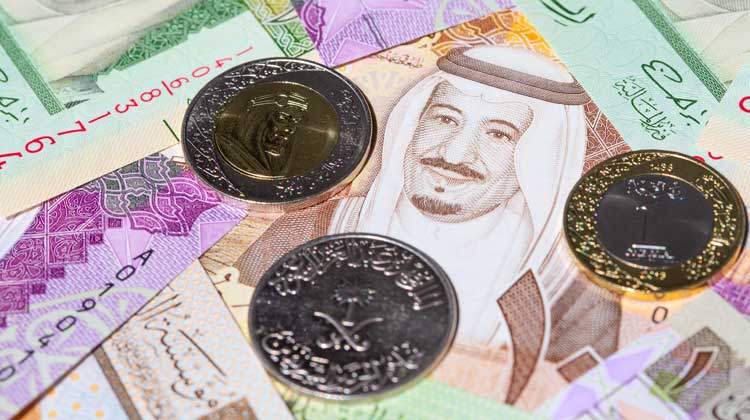Saudi Arabia continues offering economic aid to Pakistan in hopes of spreading its Sunni Islam influence across the Arab world as it also pursues an anti-Iran agenda, according to a recent Brookings Institution report.

Author Madiha Afzal, visiting fellow on foreign policy, global economy, and development at Brookings, noted that Saudi Arabia has been fostering growing relationships with Pakistani politicians and military officials.
In recent months, this includes heavy contacts between Saudi Crown Prince Mohammed bin Salman, also known as MBS, and Pakistani Prime Minister Imran Khan. In an attempt to steer away from aid from the West and the International Monetary Fund, Pakistan has accepted help from the kingdom several times to keep the local economy afloat.
“Saudi Arabia has also helped bail out Pakistan’s economy at multiple points,” Afzal wrote. “It helped in 1998 after Pakistan’s nuclear tests and resulting economic sanctions. … In 2014, Saudi Arabia gave Pakistan a $1.5 billion loan to shore up its economy.”
Meanwhile, Saudi Arabia found support from Pakistan, especially after facing backlash from the West after the death of Saudi journalist Jamal Khashoggi, who was killed in October at the Saudi Arabia consulate in Istanbul.
“The Khashoggi episode has played a significant role as well, and Khan’s willingness to overlook that has won him MBS’s friendship and financial backing,” Afzal wrote.
Saudi Arabia and Pakistan’s relationship has been ongoing since the 1970s. The kingdom invested in the country’s defense during the Soviet invasion of Afghanistan and the Iranian Revolution, as well as in Islamic schools.
“The revolution in Iran increased the Saudi imperative to cultivate Pakistan’s Sunnism, and the Afghan jihad and the training of mujahedeen that Pakistan embarked on gave the Saudis a vehicle to do so, via the funding of Deobandi and Ahl-e-Hadith madrassas in Pakistan,” Afzal wrote.
Economic assistance from Saudi Arabia to Pakistan has most notably been traced to funding madrassas (religious schools) with a focus on the Ahl-e-Hadith and Deobandi teachings, which are a more purist versions of Islam than the traditional teaching practiced in Pakistan. The Ahl-e-Hadith school is the most extreme of both and can be compared to the Wahhabi Islam practiced in Saudi Arabia; it has often been accused of being the ideology behind many terrorist groups.
“It is clear that Saudi Arabia’s money buys it influence in Pakistan,” Afzal wrote. “Saudi Arabia has succeeded in changing the character of Pakistan’s religiosity in a bid to expand its influence in the Muslim world, and in its mission to counter Iran.”
Pakistani officials have repeatedly denied receiving funding from Saudi Arabia.
“The money cannot be traced easily to Saudi Arabia—Pakistan’s madrassas receive private donations and they flatly deny Saudi funding sources,” Afzal wrote. “According to one estimate, the number of madrassas in Pakistan tripled between the mid-1970s and mid-1990s.”
In 2013, the kingdom invested in Pakistani nuclear weapons projects in a quest to counter Iran’s nuclear program, according to BBC Newsnight. This also allowed Pakistan to compete as the only nuclear-armed Islamic country against India.
According to the Brookings’ report, Pakistan has attempted to steer away from Saudi influence, despite Pakistan’s strong alliance with Saudi Arabia. For example, it stayed neutral in the Saudi-led coalition in Yemen, which was formed in response to Iran supporting the Houthi rebels. However, Afzal wrote that Pakistan’s stance is evolving, and it is now a key member in the Saudi-led Islamic Military Counter Terrorism Coalition, making it a key neutral player between the two biggest powers—Saudi Arabia and Iran—in the Middle East.
“[Khan] harbors sympathies toward nefarious nonstate actors [and] he supports Pakistan’s deep partnership with China and Saudi Arabia, and so on,” Michael Kugelman, deputy director and senior associate for South Asia at the Wilson Center, said in a 2018 interview with the Diplomat. “Khan has also articulated a more pro-Iran message than has the military.”
In October 2018, Khan presented himself at a Saudi investment conference, despite many other countries pulling out after the Khashoggi murder and walked away with six billion dollars in debt relief.
In February 2019, the crown prince made an official visit to Pakistan and pledged $20 billion in investment to Pakistan during this visit. According to a Time magazine article, the investments will go mostly towards Pakistani petrochemicals, power generation, and mining projects.
“We believe Pakistan is gonna be a very, very important country in the coming future and we want to be sure we are a part of that,” MBS said during his visit, according to the same Time story.
In May 2019, the crown prince agreed to postpone Pakistan’s oil shipment payments of $275 million a month over the next three years—for a total of $9.6 billion—strengthening relations and keeping Pakistan afloat while it negotiates its 13th bailout from the IMF since the 1980s.
Sandra Sadek is a staff writer for Homeland411.com
© 2019 Homeland411
Please subscribe to the Homeland411.com electronic newsletter.